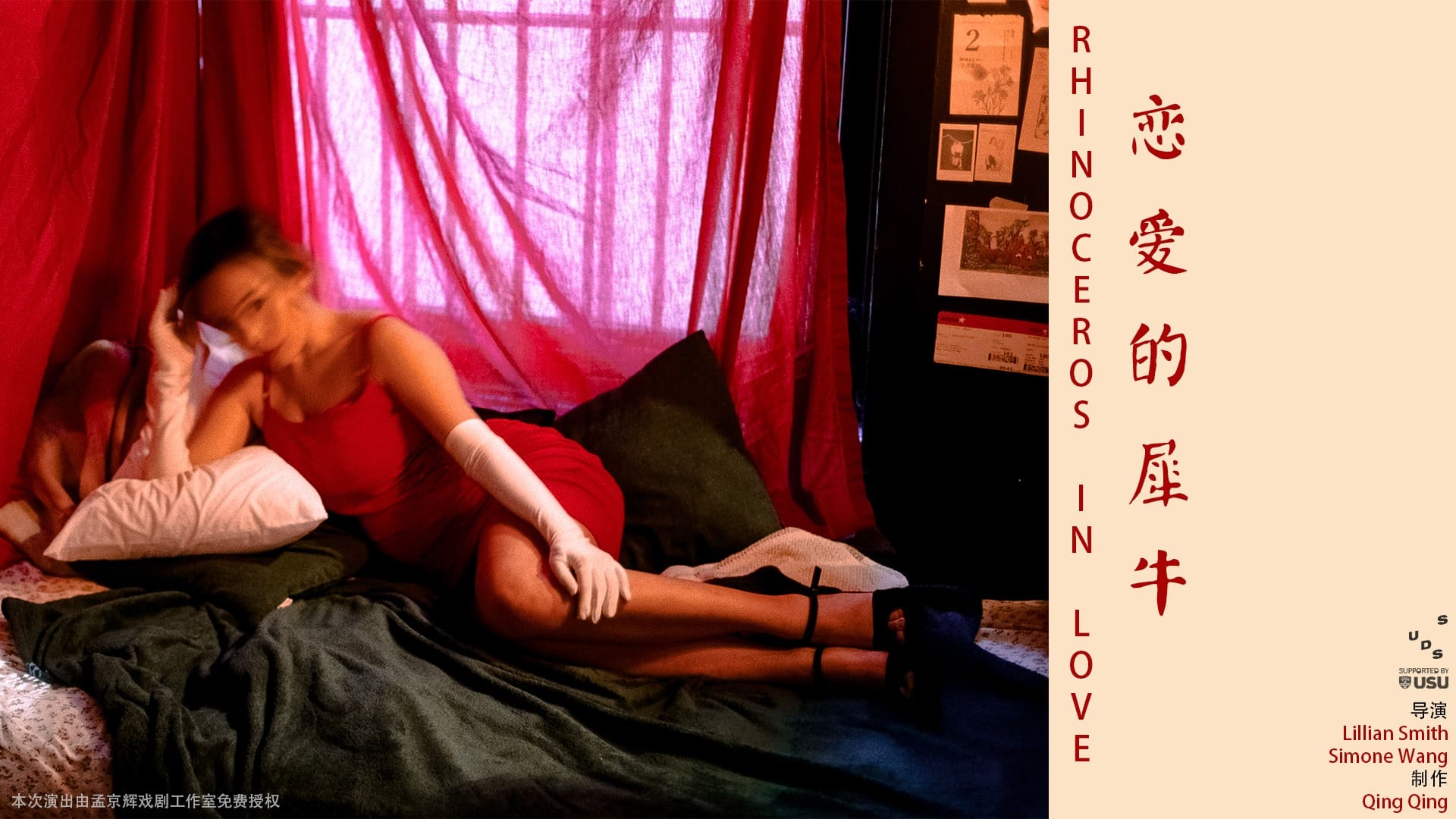The audience walked into the Cellar Theatre, clamouring and bantering as friends of the cast, excited to see the fruits of the cast, crew, and production team’s labour.
My initial impression of the stage was that it was bare and not very impressive. Only later did I realise this served a purpose: to allow for seamless transitions from scene to scene throughout the play.
The audience, myself included, surveyed the stage and bickered about what they were most excited for until the lights were dimmed.
Silence. Darkness. A spotlight opens on the lead girl, Mingming, on a chair. Blindfolded, bound to a chair, emotionless. Is she dead?
We held our breath.
Ma Lu, played by Frank Yang, stalked around the stage. “Dusk is the worst time for my vision,” he declared, the start of a passionate monologue. We are taken into the emotional journey of “Rhinoceros in Love.” Liao Yimei’s 1999 ‘Rhinoceros in Love’ is a Chinese play originally directed by the playwright’s husband Meng Jinghui. Since its birth, it has been performed more than 2,500 times, but is relatively new to the Western stage. It was translated to English in 2012 by Mark Talacko and since then, has seen relative success in the Western independent theatre space. In retrospect, I notice some discrepancies which stand out to me as deliberate changes: the inclusion of a more diverse cast, with Katherine Porritt-Fraser and Thulitha Senevirathne as the hilarious Toothbrush and Heizi, acting as bridges between the starkly different conventions of Chinese and Australian theatre.
SUDS’ production of ‘Rhinoceros in Love’ is indicative of the new-age movement of popularising Asian perspectives in Western media. The rise of Crazy Rich Asians, as the first Hollywood production with all-Asian cast since The Joy Luck Club (1993), is representative of a larger trend of the popularisation of Asian culture, seen through Subtle Asian Traits. SUDS’ ‘Rhinoceros in Love’ gives us something ‘Crazy Rich Asians’ lacked: a story with heartwarmingly familiar elements which truly represented the heart and art of independent Chinese media. Adapted to the mainstream audience, ‘Crazy Rich Asians’ portrays a shallow, albeit important, picture of Chinese culture. Watching it as a native Malaysian Chinese, I was all too conscious of its limitations.
Watching SUDS’ ‘Rhinoceros in Love’ reconciled the two identities I and many other students struggle with as the bridge between Asian and Western cultures. Evident Chinese tropes and banter are evident in Malu, Daxian, and Toothbrush’s easy camaraderie and the two eager matchmakers Honghong and Lily played by Rachel Seeto and Ellie Tilse – but this is balanced with the director’s arthouse-esque, sophisticated portrayal of Malu and Mingming’s relationship, and how it interacts with Chinese ideals surrounding ‘love’.
Frank Yang’s desperate Malu showers Karen Leong’s feisty, mysterious Mingming with gifts of affection and promises of commitment, but fails to see where he falls short. In the end, the audience sees that his public declarations of unconditional love – if only she just reciprocated, are empty promises.
We are led into the end scene with the same dark stage, the same setting, and the same characters on stage. Malu stalks around Mingming, bound to a chair, but this time she is resistant. She is terrified, pleading for mercy, begging for escape. Malu repeats his monologue, in a more feverish manner – he is clearly insane and blind to the error of his ways.
The audience, distracted by the easy banter and playful portrayals of Malu’s affections, are faced with his true persona. As Malu waves his knife, weaving around the object of his obsession, the audience is tense.
Then, a whisper, as Mingming seeks a reconciliation. Her sweet voice sings the familiar melody – Malu, distressed and maddened, transforms back to his innocent image of hopeless, unreciprocated love.
The stage goes dark.





